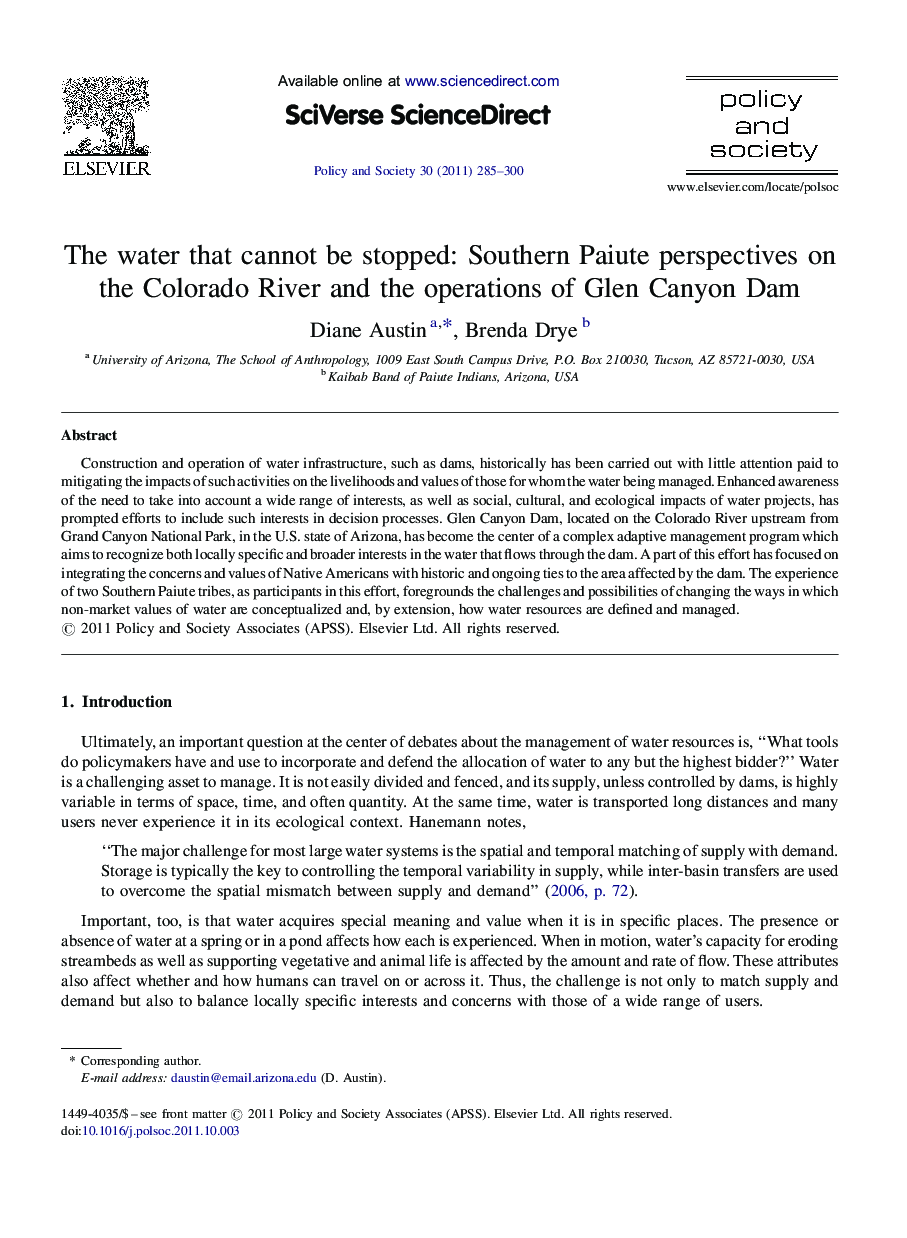| Article ID | Journal | Published Year | Pages | File Type |
|---|---|---|---|---|
| 1061469 | Policy and Society | 2011 | 16 Pages |
Construction and operation of water infrastructure, such as dams, historically has been carried out with little attention paid to mitigating the impacts of such activities on the livelihoods and values of those for whom the water being managed. Enhanced awareness of the need to take into account a wide range of interests, as well as social, cultural, and ecological impacts of water projects, has prompted efforts to include such interests in decision processes. Glen Canyon Dam, located on the Colorado River upstream from Grand Canyon National Park, in the U.S. state of Arizona, has become the center of a complex adaptive management program which aims to recognize both locally specific and broader interests in the water that flows through the dam. A part of this effort has focused on integrating the concerns and values of Native Americans with historic and ongoing ties to the area affected by the dam. The experience of two Southern Paiute tribes, as participants in this effort, foregrounds the challenges and possibilities of changing the ways in which non-market values of water are conceptualized and, by extension, how water resources are defined and managed.
